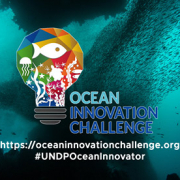Deadline: 9 May 2021
Budget: 50.000-250.000 USD
Countries: TN, DZ, MA, MR, LY
Themes:
- Fisheries and Aquaculture
The UNDP Ocean Innovation Challenge is looking for innovative solutions promoting sustainable fisheries to receive support up to 250K USD. Application deadline: 9 May 2021.
Over the years, the international community has taken important steps to promote sustainable fishing, such as the FAO’s Code of Conduct on Responsible Fishing, the 1995 UN Fish Stocks Agreement, and through the work of various regional fisheries agreements and RFMOs. Nevertheless, progress on key SDG 14 targets pertaining to sustainable fisheries has lagged and the main target, 14.4, was clearly not met in 2020.
Recognizing the increasing urgency of addressing unsustainable fishing, the second OIC Challenge, launched in March 2021, seeks innovative solutions that address one or more of the following SDG 14 targets:
- 14.4 By 2020, end overfishing, IUU fishing and destructive fishing practices
- 14.7 By 2030, increase the economic benefits to SIDS and LDCs from the sustainable use of marine resources, including through sustainable management of fisheries (and) aquaculture
- 14.b Provide access for small scale artisanal fishers to marine resources and markets
Project proponents can include governments, private companies (including start-ups), NGO/CSO, United Nations entities, academic institutions, and intergovernmental organizations.
Over the years, the international community has taken important steps to promote sustainable fishing, such as the FAO’s Code of Conduct on Responsible Fishing, the 1995 UN Fish Stocks Agreement, and through the work of various regional fisheries agreements and RFMOs. Nevertheless, progress on key SDG 14 targets pertaining to sustainable fisheries has lagged and the main target, 14.4, was clearly not met in 2020.
Recognizing the increasing urgency of addressing unsustainable fishing, the second OIC Challenge, launched in March 2021, seeks innovative solutions that address one or more of the following SDG 14 targets:
- 14.4 By 2020, end overfishing, IUU fishing and destructive fishing practices
- 14.7 By 2030, increase the economic benefits to SIDS and LDCs from the sustainable use of marine resources, including through sustainable management of fisheries (and) aquaculture
- 14.b Provide access for small scale artisanal fishers to marine resources and markets
Project proponents can include governments, private companies (including start-ups), NGO/CSO, United Nations entities, academic institutions, and intergovernmental organizations.
More information on the call-page of the ocean innovation challenge website

